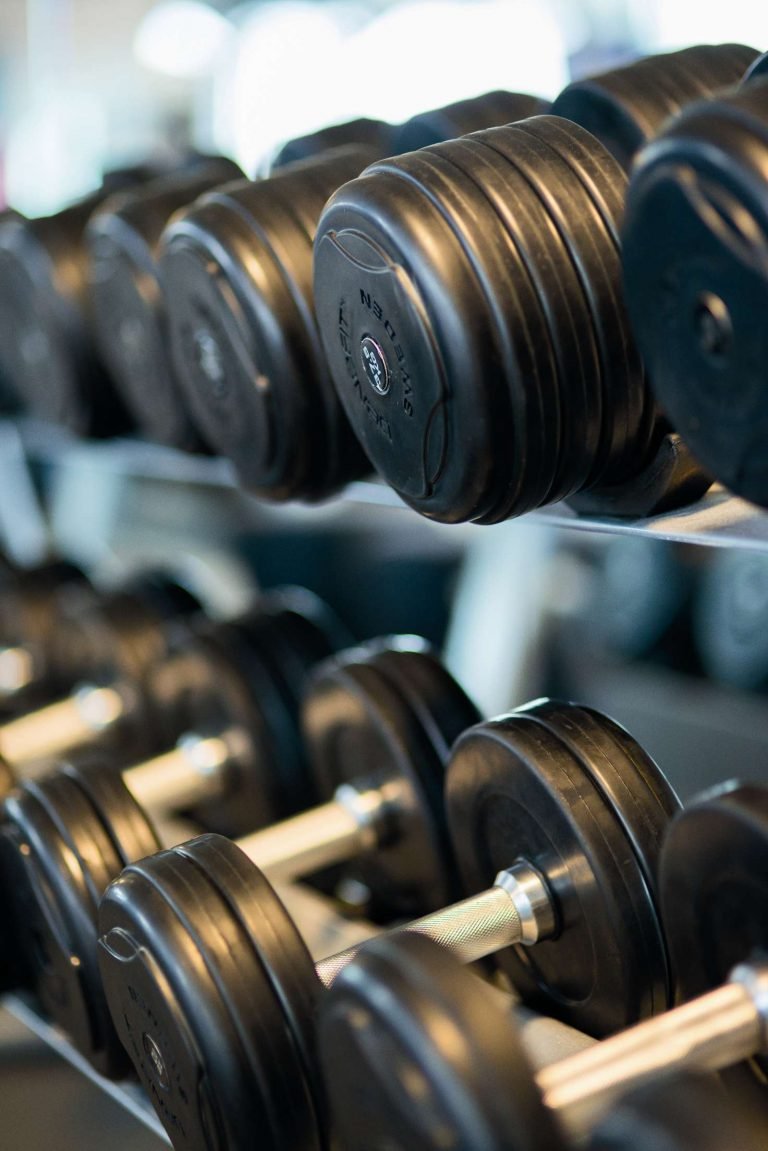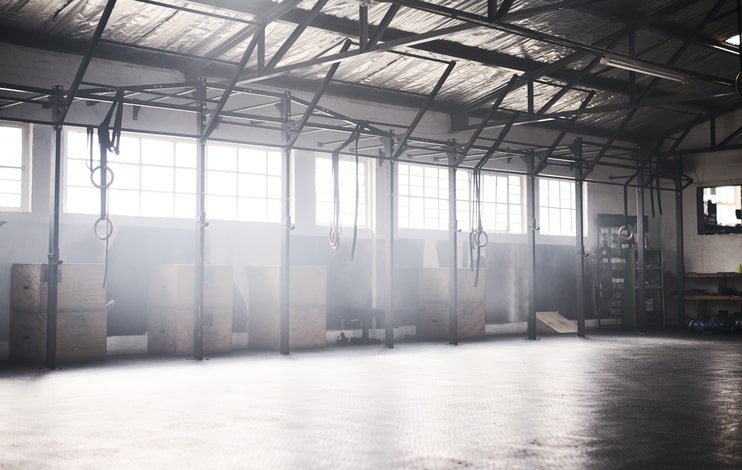From the desk of Harsh Strongman
Topic: Answering the “Why am I not gaining muscle” question (muscle math)
Most people in gyms look the same month after month and year after year (not counting guys who are in their first year of training).
You could go to a different gym for 6 months and then come back to your current one … and notice that even after half a year of training, most regular people’s body looks almost the same.
Hell, you might have noticed this on yourself. You saw a lot of gains when you started, but after 6-7 months, your body has been relatively “same looking” despite your training hard on every machine in your gym.
In this article, let’s address the main reasons why this is happening to you despite you spending many hours in the gym every week.
1) You Mostly Train on Machines
Most modern gyms are full of many isolation machines, and most modern gyms are full of people who aren’t strong despite spending years working out with those isolation machines.
This is not the fault of the trainee, but the training. Machines don’t make you strong in the real world; they only make you better on the machine.
This is because they force you to exercise along the machine’s movement pattern and not your body’s natural anthropometric movement pattern.
If you use a smith machine to squat – the machine is keeping the bar path straight for you, i.e., your body isn’t learning the natural movement pattern that keeps the bar path straight, and thus, you’re gaining less than you would with just a regular barbell squat.
Moreover, this way of training is unnatural to your body – your body does not use every muscle independently in isolation; it works as a system, and thus it must be trained as a system.
When you train leg curls, you are isolating your hamstrings to train them. But why do you want to isolate your hamstrings? There are no natural movements your body needs to do that use only hamstrings.
Just because machines can help you isolate a muscle does not mean that this is how the muscle needs to be trained.
You need to be training your entire body along a full range of motion, i.e., loaded squats, deadlifts, chin-ups, overhead presses, etc. especially if you’re a beginner.
(And if you’ve trained on mostly machines, you’re a beginner. Regardless of how many years you’ve trained.)
If you train with barbells for just 6 months, you’ll find that you’ll gain more strength than you did in all those years of machine work.
If you don’t know how to train with barbells, get a copy of Starting Strength (USA, India) by Mark Rippetoe.
I spent many years training with machines, and I wish I had started barbell training sooner. I only found out about it during the lockdown because I was looking for a training program that I could do in my home gym (I have barbells and plates and dumbbells, but no machines).
Along a tangent, most gyms have machines not because they make you stronger but because people have come to expect gyms to have them and machines don’t need a lot of guidance to be used.
Any minimum wage idiot can be trained to teach you how to use a machine. On the other hand, teaching you to do a proper barbell squat requires trained people who are expensive.
Actionable advice: Read Starting Strength and start training with barbells. You can get very strong, very quickly with barbell training, so get on it.
2) You Don’t Get Enough Protein
There is a well-known fact that every trainee is told the day he steps into a gym for the first time: If you want to get big and strong, eat more protein.
The muscles in your body are made of protein, i.e., amino acids.
There are 9 essential amino acids; the word essential implies that your body cannot produce its own supply – it has to depend on your diet to get them.
If you’re not eating enough protein in your diet, and your body cannot produce them, how do you expect your body to build muscle?
It would be like expecting a plant to grow without a lot of soil. Sure, it might grow some, but it’ll never become a big strong tree without enough nutritious soil to draw raw material from.
And that’s what protein is for your muscle: raw material. If you don’t put in enough raw material, you can’t get enough finished product, no matter how hard you work.
You want to get at least 1.4 grams of protein per kilogram of lean body mass and ideally get 1.8 grams or more. It’s better to get too much than to get too little.
Actionable advice: If you eat meat, eat more meat.
If you’re a vegetarian struggling to get more protein, eat more paneer and dairy products. I wrote a more comprehensive post on Indian vegetarian high protein diet plans here.
If you are a vegan, stop being vegan. And start drinking milk. And I mean real milk that comes from a mammal like a cow, not artificial white liquids from soy and plants that the marketing boys call “soy milk” and “coconut milk” but are really just estrogen juice and coconut juice with a bunch of chemicals in it to make it appear like milk.
Get some whey protein powder and track your nutrition on one of those calorie-tracking apps.
Make sure you get enough protein in; otherwise, you’re just wasting your workouts if your aim is to get strong and muscular.
3) You Don’t Eat Enough Calories
Now, you could be eating 250 grams of protein per day, but you still won’t be gaining a lot of muscle if you’re only eating, say, 1600 calories a day.

If you’re a 25-year-old, 183 cm tall, 80 kg male (or 6 feet tall 176 pounds if you prefer retard units), your basal metabolic rate is about 1750 calories.
(This means that if you were in a coma and not moving at all, your body will still burn about 1750 calories just to keep you alive.)
Of course, you’re not in a coma and are moving around all day, so you need more calories than that.
If you want to gain muscle, you need to be eating in a caloric surplus, i.e., eating more calories than you need just to maintain your body weight.
You will gain some muscle as long as you train and eat in a caloric surplus (assuming your diet has enough protein in it).
When you don’t eat enough calories, your body is forced to prioritize where it uses those limited calories. It uses them to keep you alive and your brain and other organs functioning rather than for building more muscle.
This is why you don’t gain muscle when you’re on a cut despite training a lot. Your body does not have enough calories to both build you muscle and keep everything else running. In fact, you lose muscle when you’re on a cut, and the fight is to minimize muscle loss and maximize (the ratio of) fat lost.
The exception is when you’re obese: in that case, you already have a lot of stored energy in your body, and you don’t need to be in a caloric surplus to build muscle. Your body will utilize fat from everywhere else for its energy needs.
For everyone else, though, they need to be in a surplus.
Actionable advice: Find out how many calories you should be eating using this online calculator to get a ballpark estimate of your TDEE and add about 10% to it. That should put you in a decent enough caloric surplus to maximize muscle gain.
4) You Don’t Get Enough Sleep
Let me ask you something: when is muscle built?
Is it when you’re working out in the gym, or is it when you’re in bed and sleeping?
If you said the gym, you’re wrong. When you’re in the gym, you’re breaking down muscle tissue and giving your body the impetus to grow muscle, but you’re not actually growing any muscle when you’re in the gym.
It’s when you are asleep and recovering from your workout when the body repairs the damaged muscle tissue and adds more tissue to prepare itself for future stress.
Muscle gains happen when you’re asleep and recovering.
When you don’t sleep enough, you’re not giving enough time for your body to recover from workouts, and thus, you’re “wasting” your workout. (Remember, you’re not working out for the thrills, you want to get stronger and bigger.)
You provided the stimulus for your body to grow your muscles by lifting weights, but you didn’t give your body enough time to act upon the stimulus and actually put on that muscle mass.
Actionable advice: Get at least 8 hours of sleep a day. Go early to bed if needed.
Ideally, you want to wake up naturally (without an alarm), but if that’s not an option (it’s not for most people), you want to maximize your sleep time by going to bed early enough for you to get 8 hours in.
Remember: that phone call to your friend, those WhatsApp messages, that movie, or whatever else that’s keeping you awake past the time you should be going to sleep is not worth wasting the workout.
5) You Don’t Program Increases in Weights
Muscle gains are simply an adaptation to the stress of repeated workouts – your body wants to be better at the activities you’re demanding it to do. However, once it’s adapted to a particular stress level, it won’t change until more stress is applied.
In other words, if you are training with the same weights all the time, you’re not getting stronger or bigger (as a natural trainee; anabolics change the game).
You will grow to a point to adapt to the weights you are training, and then your body will have finished adapting to the weights you are using. If you don’t increase weights, you will stop growing.
You don’t need to keep changing the exercises you’re doing, but you do need to keep increasing weights with time.
Do not be the guy who’s curling 8 kg dumbbells for 3 years straight. You will not get stronger or bigger – only sore.
Actionable advice: Program increases in weights in your training program (And make sure you have a program. Don’t just go in the gym and do whatever you feel like.).
If you’re squatting 60 kg today, squat 62 kg next week, 64 kg the one after, until you find 2 kg increments too hard to recover from. Then you can decrease the increments to 1 kg per workout … you get the point.
Pro-tip: Take 5 grams of creatine monohydrate each day.
6) You are Inconsistent and Skip Workouts
This one should be obvious. If you’re inconsistent and skipping workouts, you’re not gaining muscle … because you’re not working out enough.
Actionable advice: Make sure your workouts are not so harrowing that you dread going to the gym. If you dread your workouts regularly, you won’t have the motivation to go in and do them.
Have a program you follow and make sure the program suits you. If you’re dreading your workout every single workday, your workout needs to change.
Take it easy once in a while if you need to, but keep motivation levels high. Other than that, it’s just desire and discipline.
Now, of course, there can be other reasons why you’re not gaining muscle, such as way too much cardio (think marathon training) or that you’ve hit your maximum size potential, but for most people reading this article, this list covers it.
The formula to gain muscle isn’t that hard: Eat a lot of calories and protein, train with increasing weights, and sleep well.
It isn’t rocket science, and you don’t need to over complicate it. Just fix all the items on this list and you should start to see gains pretty quickly!
Hope this helps. Let me know in the comments if you have any questions.
– Harsh Strongman











